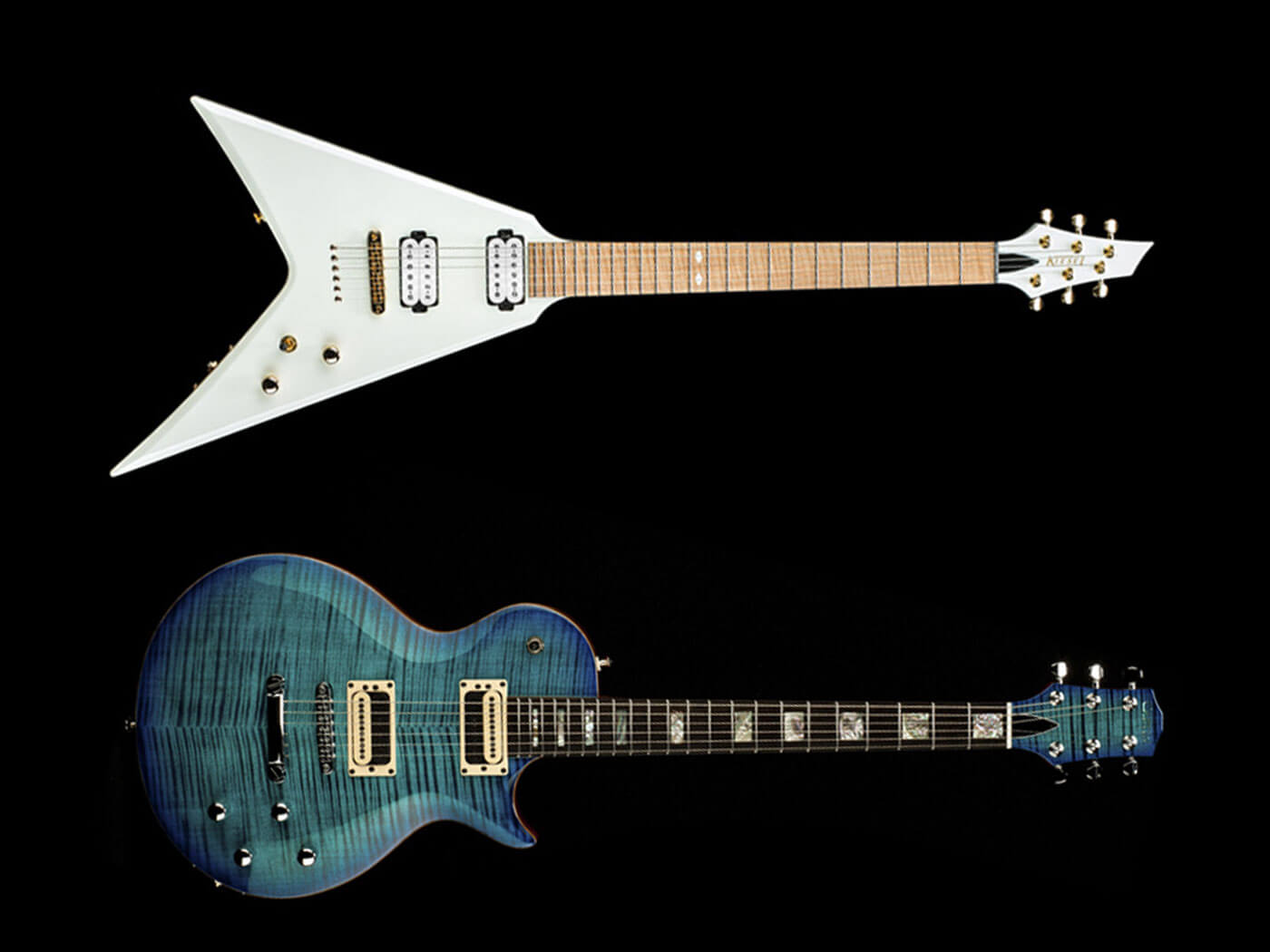Related Tags
Gibson sends cease and desist letter to Kiesel over Ultra-V and California Single models
“We’ll let them know that, ‘Hey, if you need to go ahead and sue us, that’s okay,'” says Jeff Keisel in response to letters from the guitar giant.

Kiesel’s Ultra-V and California Single. Images: Kiesel
Kiesel Guitars claims to have been sent cease and desist letters from Gibson alleging copyright infringement over Keisel’s Ultra-V and the CS6 California Single guitar designs, reigniting a controversy that erupted last year when Guitar.com revealed that Gibson was taking legal action against Dean Guitars.
Jeff Kiesel, vice president of Kiesel Guitars, made the revelation about the Ultra-V in a clip on Kiesel Guitars’ Instagram page. He strongly contested Gibson’s claim that the Kiesel guitar infringes upon the Flying V design, citing the Ultra-V’s more dramatic points and bevels, the offset nature of its shape, and the fact that the model in question was first released [under the Carvin brand] nine years before Gibson trademarked the Flying V.
“Their trademark was fulfilled in 1995; our model came out in 1986,” said Kiesel. “I named the Ultra-V, so I think it was about ’86 when it came out, I was seven years old, so it’s a really special model to me.
“So, to have those bozos try to tell us we can’t make it anymore when it looks literally nothing like it… I mean, come on guys, look at the pointed body, look at the bevel on it: does that look anything like their V?”
In the wake of the video, Jeff Kiesel also spoke to The Guitologist YouTube channel. In the clip, he reaffirmed that he and the company have no intention of giving in to the claims: “We have to give a letter back to them, but we’ll let them know that, ‘Hey, if you need to go ahead and sue us, that’s okay.’ It’s not a battle they’re going to win, and we’re not gonna back down. Because at the end of the day, we have logic and facts behind us; they have nothing. They just have pure emotion.”
Furthermore, Kiesel went on to reveal that Gibson’s grievance was not just limited to the Ultra-V. Gibson had also issued a separate cease-and-desist over the Kiesel CS6 California Single, which is a single-cut, twin-humbucker model.
What’s not clear is when exactly Kiesel received either cease and desist letter, and whether it was before or after Gibson lost the Flying V trademark in the EU or sought legal challenges against Dean over body shapes.
Gibson’s various legal challenges follow the infamous Play Authentic controversy, which the brand has since apologised for and responded by moving towards “a culture of collaboration rather than confrontation”.
When we recently spoke to Gibson CMO Cesar Gueikian, he reiterated: “We inherited, from the previous owners, a legacy of confrontation and litigation, which we have essentially now been putting to bed. There are literally just one or two situations that we haven’t been able to resolve amicably, and not because of a lack of intention on our side. But everything else, why not collaborate with those who are doing really cool things?”
Perhaps this is one of the “one or two” cases Cesar makes reference to, or a new battleground opening up over guitar body shapes?
For more guitar news, click here.
